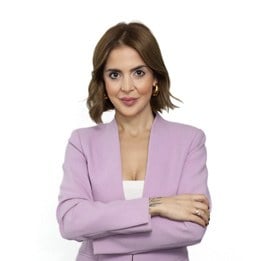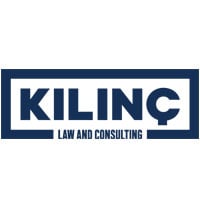

Legal counsel | IC Holding



Seraf Özer
Legal counsel | IC Holding
Could you share with us the story of your path to becoming an in-house counsel? What motivated you to choose this career path?
Law is a profession that not only entails responsibility towards clients but also towards society and justice. This is one of the most significant reasons why I feel connected to this profession. Starting my career at the age of 22 in law offices allowed me to gain practical experience in different fields and sectors related to litigation and legal counselling, through the responsibilities I undertook in those offices. In addition, my experiences in client-lawyer communication have served as a means for me to further internalise the role of a lawyer and to develop a genuine affection for my profession, embracing it with all its challenges.
My journey towards becoming an in-house counsel began with internalising all these experiences. With an interest in the internal dynamics and decision-making processes within corporate entities, which I previously only engaged with as a “client,” I transitioned to an in-house role.
I think that one of the crucial aspects of the dialogue between a client and a lawyer – especially when the client is not a legal professional, but a trader or a businessperson – is correctly understanding the question posed and, more importantly, the purpose behind asking that question, in order to arrive at the correct conclusion. I believe it is important to gain firsthand experience and engage in direct interaction with businesspeople from various sectors to understand their perspectives, approaches to management, and how they view situations and events.
I believe this journey is boundless, offering continuous learning and growth opportunities.
Being an in-house counsel is not only about being a good lawyer. It is also about preparing individuals to be good managers by involving them in evaluation and decision-making processes. As someone who has experienced both law firm and in-house counsel roles, I believe that the balance you must maintain as in-house counsel provides a more accurate reflection of the realities of professional life.
In your role as an in-house counsel, what are the main responsibilities and tasks you handle on a day-to-day basis?
Essentially, my primary areas of work in the follow-up and management of cases can be defined as corporate and commercial law, employment law, administration, and tax law. In this context, as an in-house attorney, I work closely with specialised external law firms to follow up and manage cases, collectively determine strategies with external firms at every step, and personally monitor the process. I report the status of all these legal process follow-ups to the company management and share our risk analysis work with relevant departments.
Alongside law firms comprising attorneys specialised in different fields, I act as a bridge in ensuring accurate information flow between the company and external office attorneys, and coordinate with other relevant units of the company in collective work. One of the most important functions of in-house counsel is to facilitate the flow of information with external offices through effective communication, which is crucial for enhancing the efficiency of fieldwork. Therefore, in-house consultancy entails various responsibilities and duties that change daily, not only legally but also ensuring correct coordination with both external offices and different internal departments of the company.
What are some of the key challenges you have faced as a rising star in-house counsel, and how have you overcome them?
The greatest challenge is gaining the trust of company leaders when making meaningful and effective legal decisions. In-house counsel’s competence is not only measured by their expertise but also by how accurately, clearly, timely, and sufficiently they present their decisions. If a legal opinion is not presented correctly and convincingly to an expert manager – not a lawyer, obtaining legally sound decisions for the company can be quite challenging.
The key here is how well-founded the in-house counsel’s opinion is. It is important for in-house counsel to present their opinions based on solid evidence and to reflect discipline and dedication in their work to gain trust. As difficult as it is to reach this threshold of trust, losing it is just as easy. Therefore, I believe that staying dynamically engaged in a diligent teamwork, closely monitoring legal developments, and remaining open to continuous improvement are crucial components of this profession.